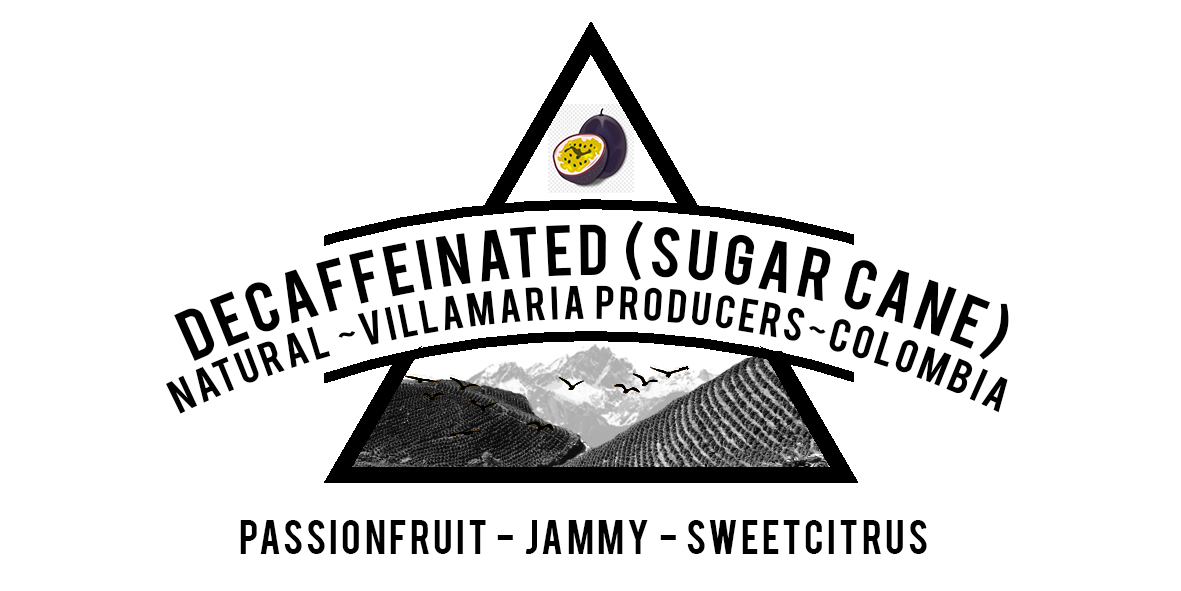I thought our decafs were good until I tasted sugarcane (Ethylene Acetate). This was a bit embarrassing as these Colombian decafs work on multiple levels. In quality terms, the coffee is pretty faultless. Sweet, clean, easy-drinking, and delicious. All so often in the coffees used in decafs (at most coffee brokers) are left-overs. The coffees that didn’t last well or sell became decaff. Should we be able to get a slot, we would have to commit to 45 bags fo a single coffee to have decaffeinated at CR3, for example. This is way more than we need and the last thing we need is old coffee.
These lots are purposely high quality graded coffees, grown for decaffeination. Small scale producers are paid above market rates for delivering good quality cherry. This is then decaffeinated in Colombia too.
Producer group: Villamaria
Process: Natural
Decaffeination: Sugar Cane
Elevation: 1800 Meters above sea level
Varietals: Castillo, Colombia, Caturra
Roast: Filter (Sugarcane decaf looks darker than it is. Don’t judge this coffee by how dark it looks, please!)
Cup Potential: Mad!
Aromatics: Caramel | Body: Silky| Acidity: Sweet & Ripe |
With a naturally processed decaf, we are programmed to expect the unexpected in the cup. In a full-immersion filter brew (think cafetiere) this is passionfruit upfront. Soft sweet acidity that opens up on cooling. Ripe, tropical fruit sugars, jammy sweet oh and it’s only decaff because you know it is.
In espresso, this is equally amazing. It just behaves as a great Colombian natural should. All of the sweetness, with the compressed passionfruit and citrus, is weirdly good as a shot and works well in milk too.






